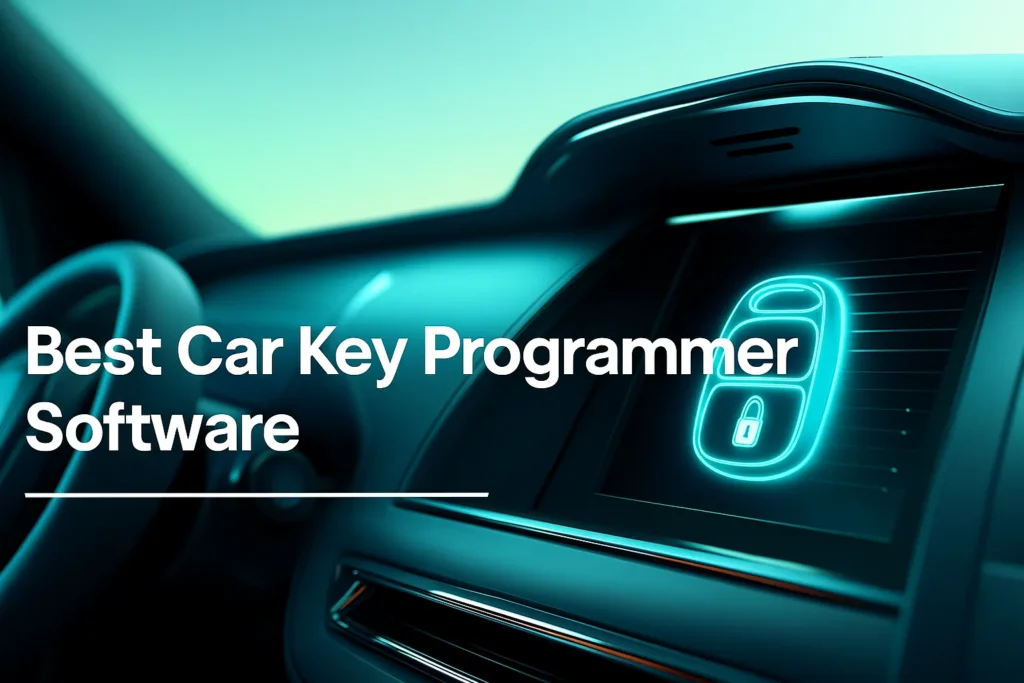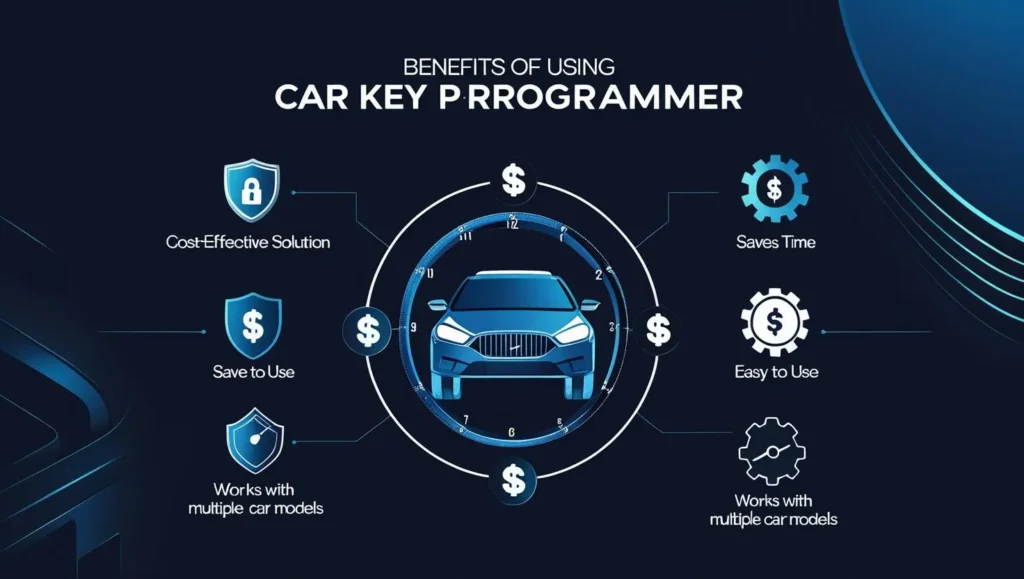
Why Use Car Key Programmer Software?
Imagine you’re standing outside your car, locked out or with a broken key fob. It’s a helpless feeling. A working key is essential, but going to a dealer or locksmith can be costly and slow. That’s where Car Key Programmer Software comes in—this tool helps you program or reprogram keys yourself, often faster and cheaper than professional services. Using Car Key Programmer Software means you don’t always need to visit a garage. It gives you control over the programming process. However, not all cars, keys, or software are the same. Before you dive in, let’s explore how it works, how to choose the right tool, and how to use it safely. For more information, continue reading below.
Understanding How Car Key Programmer Software Works
Modern cars use electronic key systems with transponders, immobilizers, and remote fobs. To work, a new key must communicate correctly with the car’s computer system. Car Key Programmer Software connects to your car’s electronic modules—often via the OBD-II port—and syncs a new key or fob with the car’s security system. For some models, the software sends encrypted codes, checks security permissions, and even erases old keys. In advanced systems like VW’s Immo 5, extra cryptographic material may be required, and subscribing to manufacturer servers can become necessary. Because of such differences, picking software that supports your car’s make, year, and immobilizer is vital.
What Types of Keys and Cars This Software Supports
Not all keys are created equal. Here are common types: Basic mechanical keys: rarely need programming. Transponder keys: have a chip inside that must be coded. Remote key fobs / keyless entry: control locking/unlocking. Smart keys / proximity keys: no need to insert them—just carry them. Push-to-start systems: must be paired with the car’s ECU. Car Key Programmer Software may support some or all of these types depending on the model. Always check compatibility before you proceed. These key systems rely on advanced technology that continues to evolve with modern vehicles.
How to Choose the Right Car Key Programmer Software
Picking the right software tool is critical. Here are things to check: Car compatibility — ensure it supports your car’s make, model, and year. Key type support — some tools handle just transponders, others include smart keys. User interface and support — does it have guided steps or updates? Safety and legitimacy — avoid cracked or pirated tools. Updates — a good tool will be updated so it works with newer vehicles. For example, many OBD2 scanners these days include basic key programming features. Others work with dedicated hardware that plugs into the car and runs via a laptop. Using proper, legal Car Key Programmer Software is much safer than using unauthorized or shady versions.
Step-by-Step: How to Use Car Key Programmer Software
Here is a walkthrough to guide you. Use caution and follow instructions carefully.
Step 1: Prepare Your Setup
Charge your car battery; low voltage can interrupt programming. Make sure you have a blank key/fob that matches your car’s frequency and type. Download and install the correct version of your Car Key Programmer Software.
Step 2: Connect to Your Car
Plug your programming tool or adapter into the car’s OBD-II port (usually under the dashboard). For wireless tools or apps, pair via Bluetooth or Wi-Fi, following the instructions.
Step 3: Select Car Model and Key Type
Open the software and enter your car’s make, year, and model. Then select the type of key you are programming—transponder, remote, or smart key.
Step 4: Put the Car in Programming Mode
Many cars require a specific sequence to enter key programming mode: turning the ignition on/off several times, pressing lock/unlock buttons, or following in‑software prompts.
Step 5: Program the New Key
Let the software communicate with your car’s security system. It will write code to the new key. Wait until it confirms success. Sometimes older valid keys must be reprogrammed or erased if they were not included.
Step 6: Test Everything
After programming, check if the new key can start the engine, lock/unlock doors, and use remote features (if available). If something fails, recheck your steps or compatibility.
Table: Sample Tools and Their Features
| Tool / Device | Supports Smart Keys? | Car Brands Covered | Notes |
|---|---|---|---|
| Basic OBD2 Scanner | No | Older cars | Good for simple transponder keys |
| Dedicated Programmer | Yes | Many brands | Better for newer cars, supports smart keys |
| Smartphone App + Adapter | Optional | Select models | Convenient but limited coverage |
This table provides a clear idea of which tool suits which user. Beginners may prefer app-based tools, while professionals use dedicated programmers.

Common Problems & How to Fix Them
Even when everything seems right, issues can happen. Software not recognizing car: Check cable, port, or make sure you selected correct model. Key programming fails: Maybe the blank key is incompatible, or the process was interrupted. Car doesn’t start: You might need to reprogram or include all valid keys. Error messages: Look up the error in the tool’s support guide. Security restrictions: Some vehicles require online verification or manufacturer tokens. Avoid rushing the process. Interrupting can corrupt the car’s security module.
Safety Considerations & Risks
Programming a car key involves interacting with your car’s security systems. Mistakes can “brick” your car (make it unusable). A user reported using an XTool D7 on a 2020 Nissan and ended up disabling his car’s BCM (Body Control Module). Using cracked software or tools from untrusted sources increases risk. They may carry malware or incorrect programming logic. Always stick with legitimate, updated Car Key Programmer Software.
FAQs
Q1. Can I really save money using Car Key Programmer Software?
Yes, in most cases, you’ll save significantly by avoiding dealership fees and doing the programming yourself.
Q2. Is it better to go to a professional or try software first?
If your car is older and supported, try the software. For complex security systems, it’s safer to consult a professional.
Q3. Will I need special training to use the software?
No, most tools are designed for everyday users and include clear instructions. But reading the manual is essential.
Q4. What if the software damages my car?
Always use trusted, up-to-date software. If anything goes wrong, stop immediately and contact a technician.
Q5. Can I use this for more than one car?
Many tools support multiple vehicles, but some are limited by brand or require extra licenses for other models.
Conclusion
With the right approach, Car Key Programmer Software lets you take care of key programming from home, saving time and money. But you must choose software wisely, verify compatibility, follow methodical steps, and be cautious. If at any point things don’t go right, professional help is better than risking damage.
In summary, this guide walked you through how the software works, key types it supports, how to choose the right tool, and how to use it step by step—plus common problems and solutions.
Tried programming your own key? Share your experience or questions in the comments below—we’d love to hear from you!

